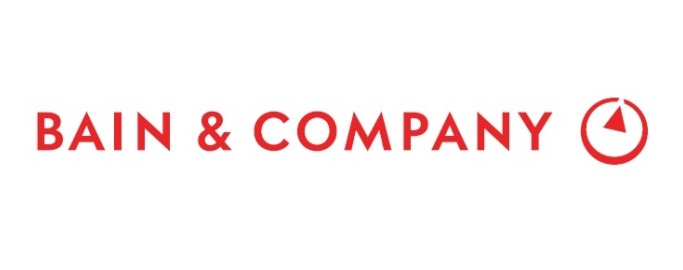
Crafting a great management consultant resume is probably one of the biggest challenges applicants face. As the consultancy employment market is extremely competitive, most aspiring consultants are qualified for the vacant position. With such steep competition, your job application must reflect outstanding professional experience, skills, and achievements.
Most aspiring consultants dream of working at global management consulting firms such as Bain & Co. And like other world renowned firms, Bain utilizes a rigorous and competitive screening process. Candidates who wish to work at this reputable company must be able to devise an interesting and relevant application.
This means you have to submit a customized resume in order to pass Bain’s initial screening process. When crafting your application, keep in mind that only a small percentage of applicants get an interview at Bain.
What Bain Looks For
To determine which candidates are eligible to move on to the interview stage, Bain developed a points system to evaluate their applicants’ educational attainment, work experience, and related extracurricular activities. Recruiters look for individuals who possess the following:
| Excellent problem-solving skills |
Bain searches for aspiring consultants who have the ability to frame complex problems while using creative analytics to generate a pragmatic solution. |
| Proven leadership experience |
Whether work or school related, Bain places a great deal of importance on strong leadership skills and experience. |
| Passionate about consulting |
You can’t teach anyone to be passionate about something they don’t really like. In order to excel at Bain, you need to be enthusiastic and driven in solving client problems. Passion means energy and energy means achievement. |
| Results-oriented |
Bain also looks for candidates with a results-oriented track record. Regardless of your background, the firm will be impressed by the quantifiable impact you had within an organization. |
Bain recruits talented and experienced professionals to fill their Associate Consultant positions from a variety of places—from colleges and universities and top graduate schools to meet-ups and networking events.
Know Your Target Firm
Before you start creating your consulting resume, allot some time to researching your target firm. Acquiring knowledge about Bain will guide you in writing your application. As your resume has to be targeted to the company and the position, obtaining information will help you build a connection with them as a potential employer. You can find relevant information on their company website including their goals, values, and other essential details.
You can also follow their social media accounts in order to stay updated on recent activities and events. You won’t be able to include all the information you find on your resume, but you will definitely benefit from the knowledge, particularly if you are selected to be interviewed.
Moreover, seek the advice of colleagues who have worked or are currently working for Bain. You may just learn relevant information about what the company is currently looking for, preferred methodology, skills, etc.
Crafting Your Bain Resume
In general, the format of a resume includes the following categories:
- Header with personal information
- Summary and objective
- Work experience and achievements
- Educational background
- Interests/activities
However, most consulting resumes do not include a summary or objectives section. This is because as an aspiring consultant, your summary and career objectives must be clearly demonstrated through your achievements. Besides, recruiters at top-tier consulting firms like Bain are busy people; they don’t want to see any irrelevant information.
Also, remember to structure your resume to address the needs of the recruitment consultant. Place your name at the top of the page and mention your employment history in reverse chronological order, or starting with the most recent position.
Personal Information Section
In this section, mention all relevant personal details: your name, home address, email address, and contact numbers. To convey a more professional feel you can add the URL to your online portfolio or website. It is also recommended to use a larger font for your name.
In addition, make sure you provide a simple and professional email address. Using a funny email address will not help you get a job at Bain. In fact, according to a survey titled “Confession of the Recruitment Agency,” 76% of applications that contain an unprofessional email address are rejected. It is recommended to use your first and last name when setting up an email account for business and professional use as in the example below. Lastly, ensure the contact numbers you provide are accurate and functional.
Example:
John Doe
123 Vanowen Street, Van Nuys, CA 91405 | (+145) 987-6543 |
[email protected]
Professional Experience and Achievements
When developing this section of your Bain resume, remember to include your accomplishments in addition to your responsibilities. Under each job heading, you may use bullet points to detail your achievements; make sure you mention the most impressive ones first.
Simply listing your previous position titles and role descriptions will not suffice. Bain wants to know about your tangible contributions. You can also include major projects that you’ve worked on in which you demonstrated key skills. Top-tier firms are interested in quantifiable achievements, not responsibilities.
When conveying your accomplishments, use numbers and statistics. Your prospective firm will translate these numbers into a solid record of quantifiable success.
Example:
Business Product Manager, US Telecommunications, CA
- Planned and implemented a sales campaign that yielded a 23% response rate and 20% increase in target sales.
Educational Background
If you are a fresh graduate, this section should follow your personal details. Your educational training will help Bain assess how equipped you are for the available consulting role. If you already have relevant working experience, it is suggested to place this section after your work experience.
Some of the most vital information to include is the name of your college/university, your degree, the years attended, and relevant coursework. Moreover, you may include your GPA, LSAT scores, and other relevant tests you have taken. It is also recommended to list any awards you received either for academic excellence or social involvement. If you feel you have an impressive transcript, you can attach it to your application.
Example:
University of California, Berkeley, Marketing Degree, 2009-2012
Cum laude, Notable Achievement Undergraduate Award 2012
GPA: 3.9
Extracurricular Activities
It is also recommended to include this section if you recently graduated as it can effectively demonstrate the qualities Bain looks for in applicants. However, if you already have plenty of professional experience, this section may be unnecessary.
In this section of you can highlight any of the following:
| Leadership Experience |
Bain’s website alludes to their interest in candidates with proven leadership skills. Applicants with innate leadership skills typically have strong character, a quality essential to succeed in this industry. |
| Writing Skills |
If you wrote articles or editorials for your school magazine or weekly publication, include this in your Bain application. Management consultants write a tremendous amount of reports and recommendations, thus excellent writing skills are a valuable asset. |
| Volunteer Work |
Volunteerism is a strong indicator of genuine passion and commitment. To be successful in management consulting, you must be committed. |
Example:
Associate Editor, Veritas Publication, SY 2009 – 2010
Wrote news and feature articles; edited articles to ensure high quality and original content.
Additional Skills and Interests
If you have other relevant qualifications, you may include them in this section of your Bain resume. For example, you could include the following credentials: foreign languages, software expertise, professional group involvement, and certificates and licenses.
Common Consulting Resume Mistakes
To ensure that your Bain resume is impeccably written, avoid committing the following mistakes:
| Inadequate spacing or poor formatting |
Appearance definitely matters. Use adequate white space and avoid bulk text. Spacing is critical as recruiters tend to ignore applications that tire the eyes. Make sure your Bain resume is reader-friendly with a consistent and clean format. |
| Lack of numbers |
Include quantifiable attainments. Numbers seem to be the most eye-catching part of a consulting resume as they indicate a quantitative reflection of your skills. |
| Insignificant awards |
Only mention honors or awards that are relevant to consulting: academic excellence and notable social involvement. Bain is not interested in your other personal accomplishments. |
| Stating the obvious |
This common mistake is usually made in the professional experience section. Many aspiring consultants fail to demonstrate the qualities the firm is looking for in describing their previous roles. Instead of simply stating your contribution, explain how you achieved the results. |
| Lengthy |
Keep your Bain resume short and concise. Hiring managers don’t have the time or patience to read lengthy applications. Include only the relevant highlights of your career and keep it to one page if possible. |
| Texty syndrome |
Do not use two words when one will do. For example, “led and managed” or “completed and processed.” If you can efficiently describe the action taken in a single word, don’t use two. |
| Adding a photo |
Attaching a photo can distract hiring managers from your qualifications. Unless Bain asks for a photo, your application is better off without it. |
| Incorrect tense |
Whenever you describe your past work experience, activities, and educational background, always use the past tense. Don’t write, “Managing 30 employees…” if you left the company a few years ago. |
| Information discrepancies |
According to a report by Accu-Screen, Inc., ADP, The Society of Human Resource Managers, approximately 46% of applications contain discrepancies in what the candidate provided and what the source stated. As everything can be easily verified in this age of technology, only include accurate information in your Bain resume. |
| Not using power words |
Incorporating action words in your Bain application is a must. Like keywords, managers tend to look for power words when screening resumes. Some of these words include “managed,” “supervised,” “exceeded,” “implemented,” and “developed.” |
| Failing to use keywords |
As recruiters don’t spend a lot of time reviewing your Bain resume, use keywords and phrases in order to make the interview shortlist. Some of the critical words that consulting firms like Bain look for include “business judgment,” “problem-solving,” and “leadership.” To identify relevant keywords, read the job advertisement and research the target position. |
Landing a job at Bain can be a painstaking process. However, if you are thoroughly prepared for their application and screening process, you’ll have a better chance of landing a job at this prestigious firm.
References
You Might Also Like...











